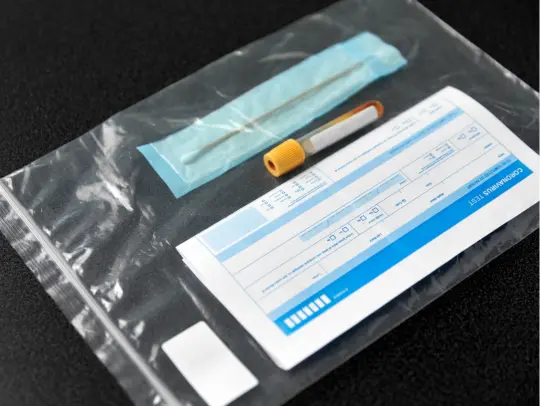
Nurse Practitioner Clarissa - 7 Powerful Natural Methods to Shrink Your Prostate and Reclaim Your Life
7 Powerful Natural Methods to Shrink Your Prostate and Reclaim Your Life
For millions of men worldwide, an enlarged prostate isn't just a medical condition—it's a daily reality that disrupts sleep, affects confidence, and diminishes quality of life. But what if the solution to better prostate health doesn't necessarily require medication or surgery? This comprehensive guide explores evidence-based natural approaches that can help reduce prostate size, alleviate uncomfortable symptoms, and restore your sense of control.
Understanding the Prostate: Small Gland, Big Impact
The prostate is a small gland located between the bladder and penis that plays a crucial role in the male reproductive system. Its primary function is producing seminal fluid that nourishes and transports sperm. However, as men age, the prostate often enlarges—a condition known as benign prostatic hyperplasia (BPH).
This enlargement can cause the prostate to press against the urethra, leading to uncomfortable urinary symptoms that can significantly impact quality of life:
- Difficulty starting urination despite feeling the need to go
- Weak urine stream that starts and stops unpredictably
- The persistent sensation of incomplete bladder emptying
- Frequent nighttime urination (nocturia) that disrupts sleep patterns
- Sudden urges to urinate that can be difficult to control
While these symptoms might seem merely annoying, an untreated enlarged prostate can lead to more serious complications including urinary tract infections, bladder stones, or even kidney damage in severe cases.
Why Natural Approaches Matter: Beyond Symptom Management
Managing prostate size naturally isn't just about avoiding medication—it's about addressing potential root causes rather than simply masking symptoms. Natural approaches often work on multiple levels:
Benefits of Natural Prostate Management
- Reducing inflammation that may contribute to prostate enlargement
- Supporting hormonal balance that influences prostate tissue
- Improving overall health markers that affect prostate function
- Potentially slowing the progression of prostate enlargement
- Avoiding side effects associated with some medications
- Creating sustainable lifestyle changes with whole-body benefits
These natural strategies aren't just good for your prostate—they're good for your entire body, offering benefits that extend far beyond urinary health.
Strategy 1: Anti-Inflammatory Nutrition For Prostate Health
What you eat may be one of the most powerful tools for naturally managing prostate size. Research increasingly suggests that dietary choices can significantly impact prostate health, with certain foods offering protective benefits while others may exacerbate prostate enlargement.
Prostate-Protective Foods to Embrace
Tomatoes & Lycopene-Rich Foods
Tomatoes deserve special mention for their high lycopene content—a powerful antioxidant linked specifically to prostate health. Cooking tomatoes actually increases lycopene availability, making tomato sauce, paste, and soup excellent options.
Omega-3 Rich Fish
Cold-water fish like salmon, mackerel, and sardines contain omega-3 fatty acids that help reduce inflammation throughout the body, including the prostate. Aim for at least two servings weekly.
Colorful Vegetables
Bell peppers, leafy greens, and other colorful vegetables contain antioxidants that combat oxidative stress and inflammation—both factors in prostate enlargement.
Zinc-Rich Foods
The prostate contains one of the highest concentrations of zinc in the body. Pumpkin seeds, oysters, and legumes provide this essential mineral that supports prostate cell health.
Foods to Limit or Avoid
Just as important as what to eat is what to minimize:
- Red and processed meats: Associated with increased inflammation and potentially larger prostate size
- Dairy products: Some studies suggest high dairy consumption may influence prostate growth
- Refined carbohydrates and sugars: These can trigger inflammatory responses
- Alcohol: Acts as both a diuretic and bladder irritant, potentially worsening symptoms
Strategy 2: The Movement Medicine - Exercise's Impact on Prostate Health
Regular physical activity offers multifaceted benefits for prostate health, potentially reducing enlargement and alleviating symptoms through several mechanisms.
How Exercise Benefits the Prostate
- Weight management: Studies have found correlations between obesity—particularly excess abdominal fat—and increased prostate size
- Hormone regulation: Regular physical activity helps maintain healthy testosterone levels and improves insulin sensitivity
- Improved circulation: Better blood flow throughout the pelvic region can reduce congestion around the prostate
- Stress reduction: Exercise naturally lowers stress hormones that may contribute to prostate issues
The Most Effective Exercises for Prostate Health
While all movement is beneficial, certain types of exercise may be particularly helpful:
- Brisk walking: An accessible activity that improves circulation without placing stress on the body
- Swimming: Provides whole-body exercise without impact, ideal for men with joint issues
- Kegel exercises: Strengthening the pelvic floor can improve bladder control and manage BPH symptoms
- Moderate weight training: Helps maintain muscle mass and support hormonal health
The key is consistency—aim for at least 30 minutes of moderate activity most days of the week, incorporating both aerobic exercise and strength training for optimal results.
Strategy 3: Hydration Wisdom - The Liquid Factor
Proper fluid management plays a crucial role in prostate health and symptom control, though it may seem counterintuitive at first.
Strategic Hydration Practices
While it might seem logical to reduce fluid intake when experiencing urinary frequency, proper hydration is essential for overall prostate health:
- Aim for 6-8 glasses of water daily, but distribute consumption throughout the day
- Reduce fluid intake in the evening hours (2-3 hours before bedtime) to minimize nighttime urination
- Monitor urine color—pale yellow indicates appropriate hydration
Beverages to Limit
Certain drinks act as bladder irritants and can exacerbate urinary symptoms:
- Caffeine: Coffee, tea, energy drinks, and some sodas have diuretic effects
- Alcohol: Stimulates urine production and irritates the bladder lining
- Artificially sweetened beverages: May increase bladder irritation in sensitive individuals
- Citrus juices: The acidity can irritate the bladder in some men
Strategy 4: Stress Management - The Mind-Body Connection
The relationship between stress and prostate health represents one of the most overlooked aspects of natural prostate management. Chronic stress triggers physiological responses that can directly impact prostate size and function.
How Stress Affects the Prostate
When the body remains in a state of high alert, it produces elevated levels of stress hormones that can:
- Increase inflammation throughout the body, including prostate tissue
- Contribute to hormonal imbalances that may affect prostate cells
- Cause tension in the pelvic floor muscles, potentially worsening urinary symptoms
- Disrupt sleep patterns, which further impacts overall health
Effective Stress Management Techniques
These evidence-based approaches can help reduce stress and potentially benefit prostate health:
- Mindfulness meditation: Even 10 minutes daily has been shown to reduce stress hormone levels
- Deep breathing exercises: Activate the parasympathetic nervous system to counteract stress response
- Progressive muscle relaxation: Helps release tension throughout the body, including the pelvic region
- Adequate sleep: Prioritize good sleep hygiene to support stress management
Strategy 5: Herbal Support - Natural Compounds for Prostate Health
Certain herbs and plant compounds have shown promise in supporting prostate health and potentially reducing enlargement. These natural options may help complement other lifestyle changes.
Evidence-Based Herbal Options
- Saw palmetto: Perhaps the most well-known prostate supplement, derived from the fruit of the American dwarf palm tree. May work by affecting hormones involved in prostate growth.
- Beta-sitosterol: A plant compound that has shown promise in improving urinary symptoms associated with BPH.
- Pygeum: Derived from African cherry tree bark, has anti-inflammatory properties and may help reduce prostate enlargement.
- Stinging nettle: Often combined with saw palmetto, may help modulate hormones that affect prostate size.
- Pumpkin seed extract: Rich in zinc and plant compounds that support overall prostate function.
Strategy 6: Sleep Optimization - The Restorative Factor
Quality sleep is not just a casualty of prostate issues—it can also be part of the solution. Poor sleep affects hormonal balance, inflammation levels, and overall health, potentially contributing to prostate problems.
Creating Prostate-Friendly Sleep Habits
- Establish a consistent sleep schedule, even on weekends
- Create a relaxing bedtime routine to signal your body it's time to wind down
- Ensure your bedroom is dark, quiet, and cool
- Limit screen time 1-2 hours before bed to support natural melatonin production
- Consider elevating the head of your bed slightly to reduce pressure on the bladder
Managing Nocturia (Nighttime Urination)
For many men with enlarged prostates, nighttime bathroom trips create a vicious cycle of disrupted sleep:
- Empty your bladder completely before bed
- Avoid fluids 2-3 hours before bedtime
- Limit diuretics like caffeine and alcohol, especially in the afternoon and evening
- Keep a nightlight in the bathroom to avoid fully waking up during necessary trips
Strategy 7: Environmental Factors - Reducing Exposure to Endocrine Disruptors
Emerging research suggests that certain environmental chemicals may act as endocrine disruptors—compounds that interfere with the body's hormonal systems and potentially impact prostate health.
Common Sources of Endocrine Disruptors
- Plastics containing BPA: Found in some food containers and water bottles
- Pesticides: Particularly those used on conventional produce
- Personal care products: Some contain phthalates and parabens
- Receipt paper: Often contains BPA that can be absorbed through skin
- Non-stick cookware: Some older varieties contain PFAS chemicals that may affect hormonal balance
Simple Steps to Reduce Exposure
- Choose glass or stainless steel food containers when possible
- Opt for organic produce for items on the "dirty dozen" list with highest pesticide residues
- Select personal care products labeled "paraben-free" and "phthalate-free"
- Wash hands after handling receipts
- Use cast iron, ceramic, or stainless steel cookware
While the direct link between these chemicals and prostate enlargement requires more research, reducing exposure represents a precautionary approach that supports overall health.
Bringing It All Together: Your Holistic Prostate Health Plan
Naturally supporting prostate health isn't about finding a single magic solution—it's about creating a lifestyle that addresses multiple factors influencing prostate size and function. The most effective approach combines strategies that work together synergistically:
- Focus on an anti-inflammatory diet rich in colorful vegetables, healthy fats, and prostate-supportive nutrients
- Maintain regular physical activity, including both aerobic exercise and strength training
- Practice strategic hydration while limiting bladder irritants
- Incorporate stress management techniques into your daily routine
- Consider appropriate supplements under medical guidance
- Optimize sleep habits to support hormonal balance and recovery
- Reduce exposure to potential environmental hormone disruptors
What makes this holistic approach particularly powerful is that these lifestyle modifications don't just benefit the prostate—they support cardiovascular health, help maintain healthy weight, improve sleep quality, and contribute to overall wellbeing.
The Importance of Medical Partnership
While natural methods can be remarkably effective, it's important to work with healthcare providers, especially if experiencing significant symptoms. Natural approaches can complement medical care, and in some cases, may reduce or eliminate the need for medications or procedures.
Regular prostate screenings remain essential, as they can help identify more serious conditions like prostate cancer. Discuss with your doctor how often you should be screened based on your age, risk factors, and family history.
The journey to a healthier prostate is also a journey toward a healthier life. By implementing these natural strategies, you can take proactive control of your prostate health while enhancing your quality of life for years to come.























































































































